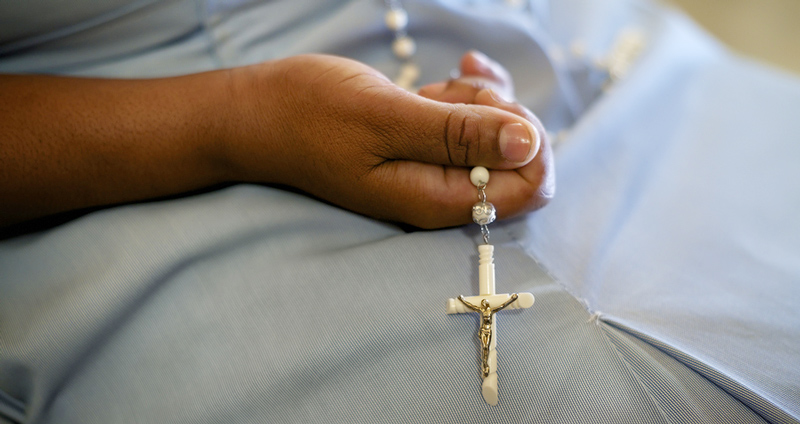
The Lord tells us that everyone is our neighbor — the stranger, the sad-faced child, the loner, the drunkard, the prostitute, the leper, the sell-out, the natural enemy. That means that everyone is worthy of our love and care, and no one is unworthy.
It is so, so easy to spout this Christian message. Every now and then it’s actually not too hard to live it. At other times, though, it’s quite a stretch.
Take this scenario. You’re in the aisle seat on a small plane. The window seat is occupied by a young guy who appears to be 90 percent tattoo and 10 percent body piercing. The hair is cut short except for what looks like a rooster’s comb set straight up with gel in the middle of his head. You chat. He’s headed for South Dakota after a stop in Atlanta.
He notices that you are a Catholic. (It’s either the crucifix or the miraculous medal.) “My grandmother was a wonderful Catholic,” he says. “She went to Mass every day and sent me through 14 years of Catholic school.” (He got over the uniforms and dress code, you think to yourself.)
He continues, “I was named for her, baptized Mary Catherine. I waited till she died to change my name to Skywalker.”
You’re very nice to Skywalker. If you had known this person for years, say as a student or as an altar server, you would probably engage and challenge. This, however, is not the time and place.
Later, though, you’re quietly quizzing God. What on earth is going on? Have notions like etiquette and civic virtue been eclipsed by the cultural ethic of “Whatever”? Have subliminal messages advancing relativism crammed our psyches? Or has our orange juice been spiked with mind-altering drugs?
Christian love demands that we acknowledge that we live in a broken and addled world. It insists that we follow in the Lord’s compassionate footsteps. It trusts that we leave it to God to read hearts and souls. However, Christian love calls us to stand firm in God’s word, Catholic moral and social teaching, and what our long Catholic tradition understands as natural law. We cannot simply shrug and say that whatever someone cooks up about gender, love, and marriage is OK.
Some choices don’t make for the well-being of persons. Some things do benefit human society. Our Catholic reverence for human dignity calls us in two directions: one toward benevolent conduct toward all, the other toward faith-filled commitment to godly standards of behavior. It’s tough to strike a balance.
Pope Francis offers some important insights on these matters. There is a balance to strike as we address individuals alongside the whims of media and politics and judicial decisions. The papal exhortation “Amoris Laetitia” (“The Joy of Love”) offers us valuable guidance for our modern-day dilemmas. That is why the next few entries to this column will consider this document from Pope Francis. It may actually help us through these airplane encounters.




